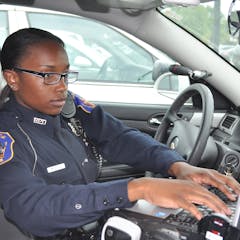
Articles on Disaster planning
Displaying 21 - 40 of 47 articles

Governments must think about older people’s relationships with pets when they’re planning both aging-in-place strategies and disaster management.

High poverty levels mean people lack access to land and work and they are often driven to settle in zones that are exposed to natural hazards.

To stay safe in a tsunami, remember that the sequence of waves may occur over hours to days, and the biggest wave in the sequence could occur at any time.

Warning Syrians of approaching airstrikes via social media is helping save lives.

Managing flood risk is not just ‘good planning’; it requires commitment to resilient cities by land developers, politicians and communities. Effective response means learning from mistakes.

After Cyclone Tracy, you’d expect Darwin of all cities to be ready for the next one. But as the clean-up after Cyclone Marcus continues, it’s clear more must be done to increase the city’s resilience.

What decisions can we make today to reduce the future risk of hazards like floods and fire? Particularly in a time of climate change, modelling various plausible futures helps us plan for uncertainty.

Promoting individual resilience will contribute to reductions in disaster threats for at-risk communities globally.

Earthquake drills, advance warning systems and higher building standards all help to save lives.

Even in areas predicted to take direct hits from hurricanes and other storms, hospitals must do all they can to stay open. It isn’t an easy task, but preparation and practice help.

The widespread discussion as to whether the Hurricane Harvey disaster was caused by climate change or not is a dangerous distraction from the real issues.

A new data management system can give emergency responders a fast lane on the internet to help speed rescue efforts after a disaster.

The St Petersburg attack shows how engineering and psychology can help optimise how people are evacuated in a disaster.

Rebuilding small communities on the same site in the same way seldom works. It’s not about getting back to where you were, but rather grasping the opportunity to create a more resilient place.

With burgeoning need and an aid system that is failing to cope, what meaning does ‘resilience’ have?

CC BY-ND31.5 MB (download)
In part two of our podcast on rebooting, we explore what would happen if humanity was wiped out, take a look at a political comeback in France, and get a taste of a revamped US institution.

What we and other responders learned that day would go on to spark major changes in U.S. emergency response efforts.

The solution to emergency communications: redundancy, redundancy, redundancy.

You might think having trees around your home is the worst idea during a bushfire, but some plants can actually help repel fire.

Mathematicians are a secret weapon when it comes to preparing for outbreaks of diseases like Ebola.
